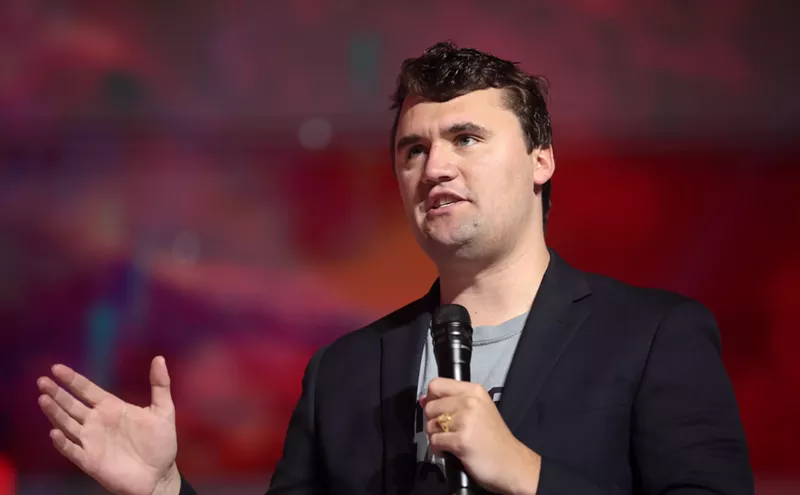The movie is supposed be comically self-deprecating, in the manner of Woody Allen in the funny old days when Bill Murray could call him the Wood-Man. Berkowitz declares that he isn't out of shape or style, just "high-waisted"; he studs the movies with scenes that are meant to be disarming and damning, such as his ex-wife venting about his uptight bathroom and bedroom habits. But who said an ego trip had to be a good trip, even for the ego in question? Berkowitz sees himself as an L.A. Everyman, which in his case means living according to the contours of a cable-ready, single-guy sitcom. When Berkowitz films a female friend going on a fizzled date of her own, he records the couple lamenting that they're "missing Friends and Seinfeld." Actually what you're seeing in this movie is an L.A. version of those shows, with a weird sort of existentialism sans the wit and geniality.
Berkowitz doesn't even get the scale right. Because he's an aspiring moviemaker, he inserts clips from big-screen hits like Sleepless in Seattle, When Harry Met Sally, and Titanic. And when he pursues his Ms. Right (Elisabeth) the camera captures him stumbling on a curb and thus naturally grabbing hold of her hand, a moment that might seem fresh and magical if it weren't a blatant imitation of Michael Corleone's Sicilian courtship in The Godfather. Given the slippery games this film plays with reality, Berkowitz might contend that this bit was unrehearsed. What's worse: being a director manque or a rip-off artist in everyday life? With cheerless chutzpah Berkowitz goes on his hapless way, trying to wangle a discount wardrobe out of one date, taking another out for a lobster dinner that costs 20 bucks a pound when he has only 56. You may agree with his producer that the film would be more appealing if it were filled with naked sex-bombs. Better soft-core porn than hard-core narcissism.
Once Berkowitz manages to snag Elisabeth's romantic interest, we're supposed to root for them to make it together. But because of his ineptitude, she comes off as a cliched idea of class. She studies interior design at night at UCLA and is obviously too good for him. But her new director-boyfriend doesn't know how to bring out the special something that he sees in her. Because we don't feel the mystical inevitability of their match, the film's "story" peters out even as it clumsily races to the finish line. In careerist L.A. the question of whether to cancel the rest of the projected twenty dates out of love for Elisabeth, and thus abort the film, should be the ne plus ultra of romantic quandaries. Instead it comes off as a mechanical means of generating third-act tension -- especially when the ever-sensitive Myles tells another date, in Elisabeth's earshot, that "Elisabeth is just a friend."
This Berkowitz is Son of Smug; his spiritual sire is Robert McKee, a key player in Hollywood's how-to-write-a-script biz. McKee manages to enunciate unexceptional thoughts in stentorian tones. "Most contemporary love stories are about longing," he explains to the adulatory Berkowitz, as we in the audience gape stupefied at them. To McKee the chances of finding true love "are slim to none," because men are interested in "the physical," women in "the metaphysical." You're tempted to say that he and Berkowitz should get in touch with their feminine sides. But that would be relevant only if you were sure they had a human side.
20 Dates.
Directed and written by Myles Berkowitz. Starring Myles Berkowitz, Elie Samaha, Elisabeth Wagner, and Robert McKee.








